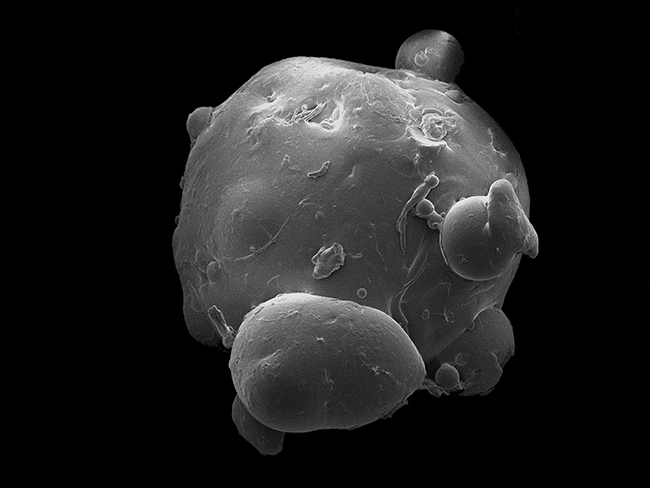
This is an image of a plastic microbead from a facewash, taken via scanning electron microscopy; it is about 0.5mm wide
University of Exeter. Creative Commons
It’s not often that we get to hear positive news stories about the marine environment. With ocean acidification, coral bleaching, and invasive species all on the news agenda it’s a rare change to hear about a likely reduction in marine pollution. I for one am celebrating the news that the UK Government has confirmed a ban on plastic microbeads in cosmetics and cleaning products by 2017.
So what’s the problem?
Plastic microbeads are used in an array of cosmetics and cleaning products from toothpastes to exfoliating skin scrubs. I’ve no idea if they work, but they are too small to be easily removed by sewage treatment plants. Consequently they are washed into rivers and seas with ‘cleaned’ discharge water where they can enter the food chain and become lodged in animal tissue.
Many companies have already banned microbeads from their products, but if you want to stay ahead of the legislation and remove the plastic is from your bathroom, look out for words such as:
polyethylene, polypropylene and polymethylmethacrylate – the chemical names for plastics. Nylon may also be listed as well as the abbreviations PET, PTFE and PMMA.
The UK Environment Secretary, Angela Leadsom said: “Most people would be dismayed to know the face scrub or toothpaste they use was causing irreversible damage to the environment, with billions of indigestible plastic pieces poisoning sea creatures.
“Adding plastic to products like face washes and body scrubs is wholly unnecessary when harmless alternatives can be used.”
She said it was the “next step in tackling microplastics in our seas” following the introduction of the 5p plastic bag charge, which was introduced in England in October.










0 Comments